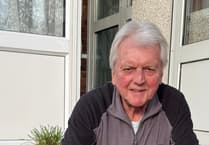Almost 3,500 GMB Union ambulance workers across the South of England are expected to strike tomorrow when they will be joined by Unison colleagues
Paramedics, emergency care assistants, call handlers and other staff will stage pickets at many NHS Trusts. This is the second such strike after ambulance workers walked out at the end of last year.
Workers across the ambulance services and some NHS Trusts have voted to strike over the Government’s imposed 4 per cent pay award - which the unions claim is a 'massive real terms pay cut'.
Rachel Harrison, GMB National Secretary, said: 'Ambulance workers across England and Wales will go on strike for the second time.
'GMB cancelled a planned strike over the Christmas period to say thank you to the public for their incredible support.
'It also allowed time for the Government to talk to us about pay, but ministers have dithered and postured, wasting valuable time.
'To end this dispute, GMB needs a concrete offer to help resolve the NHS’s crushing recruitment and retention crisis.
'The public expects the Government to treat this dispute seriously – it's time they got on with it.'
Ambulance workers from West Devon joined a picket line today for their last one-day strike near Derriford Hospital in Plymouth, calling on the Government to take action over the large numbers of delays in ambulance response times.
Strikers said one in three paramedics have seen deaths due to delays in transferring patients to hospitals and that half of ambulance trusts have ambulance workers using food banks.
Tavistock paramedic Simon Young manned the last picket line and said at the time: 'This strike is less about pay and more about working conditions which mean we are having to act more as nurses than emergency acute response workers. We spend far too much time looking after acutely ill patients in ambulances waiting to transfer them to hospital. The situation has gone too far and is about mismanagement of the whole of the wider NHS and social care.'
NHS leaders have previously warned patient safety cannot be guaranteed due to the strikes, which include phone call handlers.
NHS hospital trusts have agreed protocols with ambulance trusts on strikers continuing to respond to life threatening situations. Striking crews did leave picket lines to attend critical incidents during the first strike.
South Western Ambulance Service has advised people to only call 999 if a patient is in a medical or mental health emergency (when seriously ill or injured and their life is at risk).


.jpg?width=209&height=140&crop=209:145,smart&quality=75)

Comments
This article has no comments yet. Be the first to leave a comment.